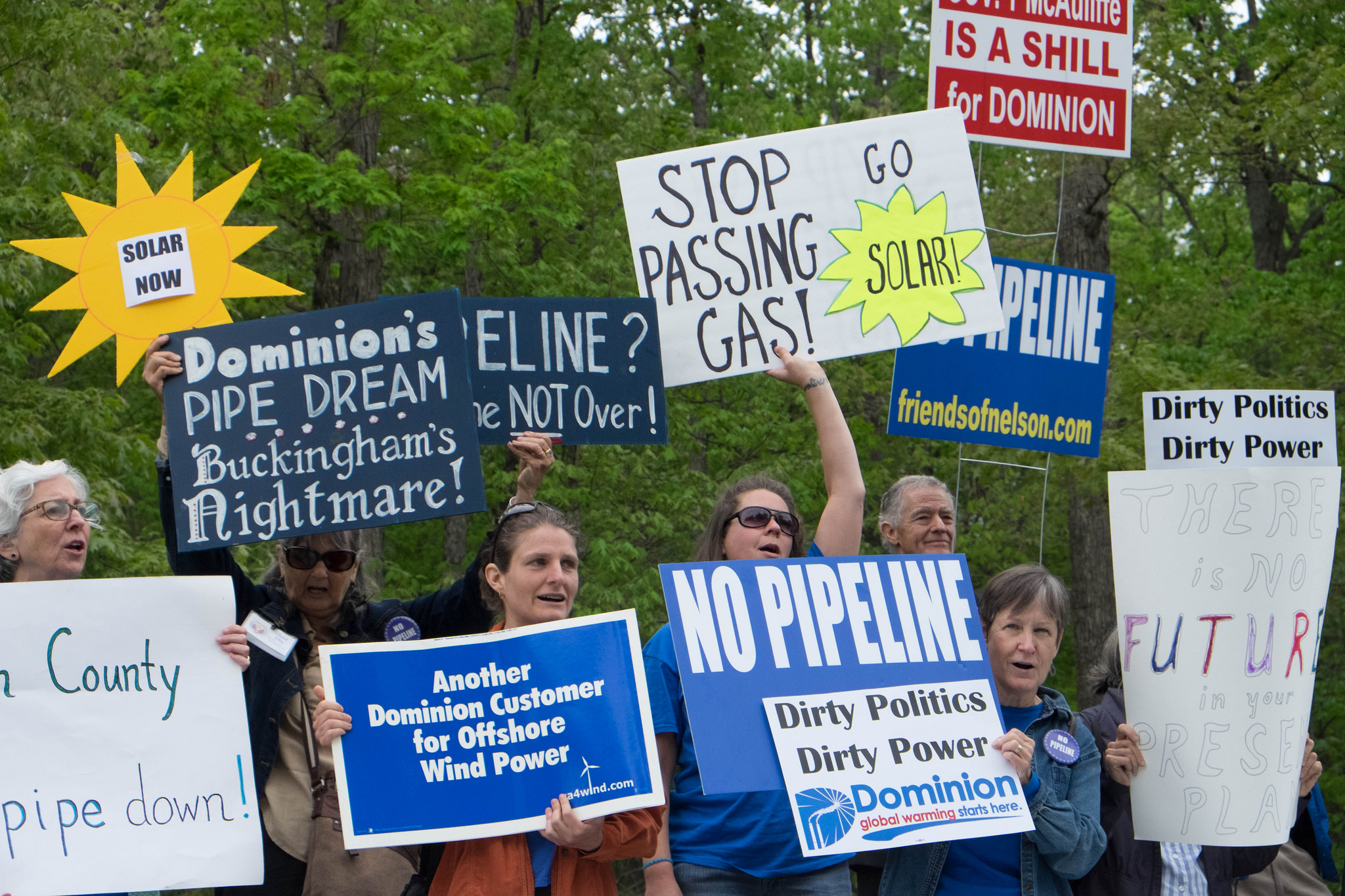DC leaders question role of stadium land deal and pay-to-play politics in reviving $6.8 billion Exelon takeover
WASHINGTON, D.C.—DC community leaders called today for a formal probe of “soccergate” questions surrounding Mayor Muriel Bowser’s recent decision to reverse course and revive a $6.8 billion utility company merger between Pepco Holdings and Chicago-based Exelon.
On October 6—just days after striking a $25 million sponsorship deal with Pepco to pave the way for the future DC United soccer stadium—the mayor struck an 11th-hour deal with Exelon to advance its merger bid. The DC Public Service Commission had unanimously rejected the merger on August 25, and Mayor Bowser backed the commission’s decision at the time.
This morning, community leaders “followed the money” to the site of the planned stadium to demand a city investigation of the timing and nature of the mayor’s deal with Pepco. During a press conference, public interest groups released a letter calling on the District Board of Ethics and Government Accountability to “evaluate these two high-stakes situations to ensure that there was no impropriety, collusion, or unethical conduct of any kind.” The groups, Public Citizen and the Chesapeake Climate Action Network, also issued a Freedom of Information Act Request for all internal correspondence between the mayor’s office, Pepco and Exelon regarding the controversial negotiations.
“DC residents deserve to know if pay-to-play politics or quid pro quos played any role in advancing this massive corporate merger,” said Craig Holman, PhD, an ethics expert and Government Affairs Lobbyist at the consumer watchdog group Public Citizen. “If the mayor has nothing to hide, then we expect she’ll support this investigation and help clear the air.”
These latest developments come in the wake of scrutiny over Mayor Bowser’s super PAC—called “FreshPAC”—and the role of pay-to-play politics in her administration. In a radio interview last Friday, DC Attorney General Karl Racine said that Exelon and Pepco should disclose whether FreshPAC asked them for money while the merger was being considered.
“Among the lengthy list of reasons why this is horrendous for District ratepayers, the mayor’s merger deal, at its core, reeks the stench of corruption and scandal,” said Sherice Muhammad, chairperson of the Ward 7D Advisory Neighborhood Commission. “There’s nothing in the deal to protect DC residents from rate hikes or job losses. Is that because Mayor Bowser had interests other than the public’s in mind? A deal that’s ‘good for DC,’ should have involved DC residents through its ANCs and civic associations, not in some back room. We want answers.”
Exelon and Pepco are spending millions of dollars in ad and lobby money to pressure the DC Public Service Commission to reverse its rejection of the merger. The PSC recently agreed to review the Bowser-Exelon settlement deal on an expedited two-month timeline, including a public hearing on November 17. The deal has been widely criticized for failing to address the merger’s fundamental threats to DC, including higher electric bills, loss of local control, and stalled progress on clean energy.
“Back-room dealing, high-priced lobbying, and shock-and-awe advertising is typical of how Exelon gets its way all over the country,” said Tim Judson, executive director of the Nuclear Information and Resource Service. “If the PSC lets this merger go through, we can kiss the promise of open, accountable government in DC goodbye.”
Ultimately, community leaders said a range of steps should be taken to ensure a fair and transparent review of the current Pepco-Exelon merger and future proposals like it:
- The District Board of Ethics and Government Accountability should launch an independent investigation into the “soccergate” questions and report on its findings before the PSC closes the record for its expedited merger review on December 18.
- The Office of the Mayor should immediately release all internal correspondence related to the Pepco land swap agreement, Akridge property, DC United stadium, and potential naming rights and/or sponsorships for Pepco.
- The District Council should establish an independent People’s Council position that is not appointed by the major. Notably, the District People’s Counsel Sandra Mattavous-Frye, who had been one of the most stalwart opponents of the merger, endorsed the mayor’s settlement just weeks before Mayor Bowser reappointed her to another term.
“Where there’s smoke, there’s almost always fire,” said Mike Tidwell, director of the Chesapeake Climate Action Network. “The stakes for DC ratepayers, our clean energy future, and our democracy are too high to look the other way. We need an independent investigation of the facts and we need it now.”
- View the letter sent today to the District Board of Ethics and Government Accountability: http://chesapeakeclimate.org/
wp/wp-content/uploads/2015/11/ Pepco-Exelon-Bowser-BEGA- Investigation-Request.pdf - View the Freedom of Information Act Request sent today to the Office of the Mayor: http://chesapeakeclimate.org/
wp/wp-content/uploads/2015/11/ FOIA-Request-for-Bowser-Pepco- Exelon-Stadium-Correspondence. pdf - Power DC fact sheet on why Mayor Bowser’s merger settlement deal is still fundamentally harmful to DC: http://www.powerdc.org/
settlement-fact-sheet.html - Infographic on the web of influence surrounding the Bowser-Pepco “Soccergate” questions: http://www.citizen.org/documents/bowser-pepco-exelon-web-of-influence.pdf
Contact:
Kelly Trout, 240-396-2022, kelly@chesapeakeclimate.org
###









